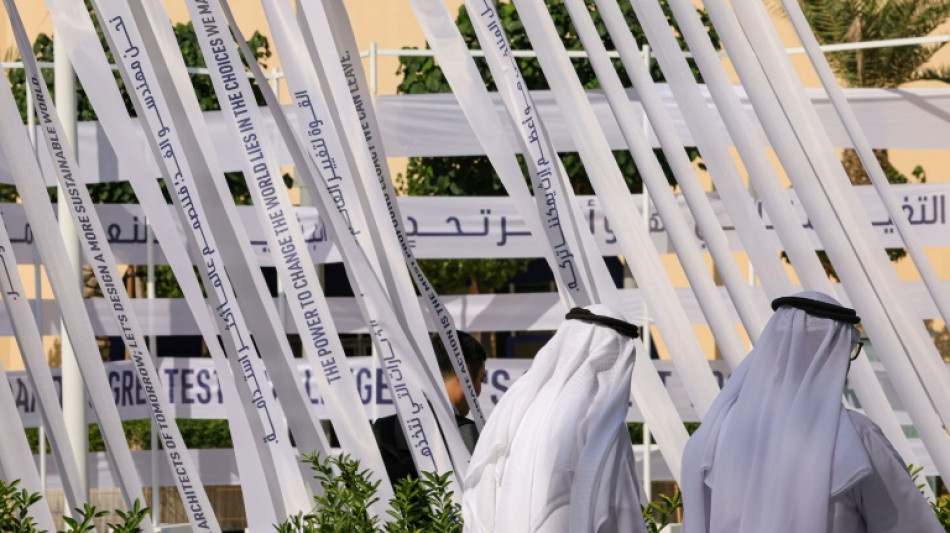The Emirati head of UN climate talks faced growing pressure Wednesday to steer nations towards a consensus as negotiators sparred over the thorny issue of fossil fuels.
A report confirming that 2023 will be the hottest year in recorded history was a reminder of the stakes as the UN negotiations hosted by the oil-rich UAE reached their midway point.
A new draft climate agreement had been expected on Wednesday but none was published by the end of the afternoon. The negotiations are due to end, in theory, on December 12.
The fate of oil, gas and coal -- the main drivers of human-caused planet heating -- has been the biggest sticking point on the agenda, and divisions around their future have dominated the conference.
"We have a starting text on the table, but it's a grab bag of ... wish lists and heavy on posturing," UN climate chief Simon Stiell told a news conference.
"At the end of next week, we need COP to deliver a bullet train to speed up climate action. We currently have an old caboose chugging over rickety tracks."
Urging embattled COP28 president Sultan Al Jaber to ease differences, Spain's Ecological Transition Minister Teresa Ribera said: "We expect from the COP president to be an honest broker and we expect leadership."
The Alliance of Small Islands States, which includes some of the world's most climate-vulnerable countries, called for "major emitters to enhance their commitments".
"If we fail, the consequences will be catastrophic," the alliance's chairman Cedric Schuster said.
- 'Orderly and just' -
Battle lines have previously been drawn on whether to agree to "phase out" or "phase down" fossil fuels.
However the latest text includes a new phrase calling for an "orderly and just" phase-out.
One person familiar with the talks said the word "orderly" came from Jaber, who also heads UAE national oil company ADNOC.
The language could signal a consensus candidate as it would give countries different timelines to cut emissions depending on their level of development and reliance on fossil fuels.
But there is another option: no mention at all of fossil fuels, which reflects opposition from nations including Saudi Arabia, Russia and China, according to several observers who attended the closed meetings.
During closed-door talks on Tuesday, Saudi Arabia again opposed any mention of fossils, saying it would avoid "the trauma of explaining our position ... that is well noted and clear," according to meeting participants.
China, India and a group representing Arab states have called for the deletion of an entire paragraph on an energy package, while Russia proposed adding text on gas as a "transition fuel," the participants said.
- 'Temperature will keep rising' -
With flagrant divisions coming to the fore, Europe has called for a harder line.
"I want this COP to mark the beginning of the end for fossil fuels," European climate commissioner Wopke Hoekstra said on Wednesday.
Germany's climate envoy Jennifer Morgan told AFP that "it is necessary that every party move away from their red lines (and) into solutions".
"We need to roll up our sleeves and get it done."
For his part, Stiell said the "key now is to sort the wheat from the chaff," urging a move towards consensus, while US climate envoy John Kerry stressed that "adults need to behave like adults".
The new draft must be brought to a large plenary meeting taking stock of the first week of talks ahead of a rest day on Thursday.
Meanwhile, the EU's Copernicus Climate Change Service said on Wednesday that 2023 will be the hottest on record after November became the sixth record-breaking month in a row.
Last month smashed the previous November heat record, pushing 2023's global average temperature to 1.46C warmer than the pre-industrial era, the service said.
"The temperature will keep rising and so will the impacts of heatwaves and droughts."
R.Altobelli--BD
